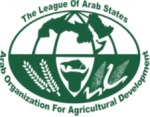Livestock is a crucial component of Sudan's national economy, making significant contributions to poverty alleviation and food security. However, despite the sector's importance, the country has not conducted a comprehensive livestock census since 1975, leaving it with outdated and often unreliable data. Discrepancies between official statistics and field observations highlight the need for updated and accurate livestock data. Recent estimates from USAID suggest that Sudan is among the top three African countries in terms of livestock numbers, with an estimated 105.6 million animals. The governance of Sudan's livestock sector involves a mix of federal and state-level policies, which have evolved over time. Historical policies, such as the 1970 Land Act and subsequent revisions, often had a negative impact on pastoralists by restricting their access to grazing land and mobility. Recent efforts to improve the policy frameworks for livestock include the proposed establishment of a National Livestock Policy Hub, which aims to strengthen veterinary capacities and review existing livestock policies. However, a new national livestock census should be conducted to provide reliable data for strategic planning and policy formulation, resolution of land tenure conflicts, and greater coordination between governmental and non-governmental organizations, and increased funding for livestock research, are mandatory to further develop and support the livestock sector.
Read the full paper here
